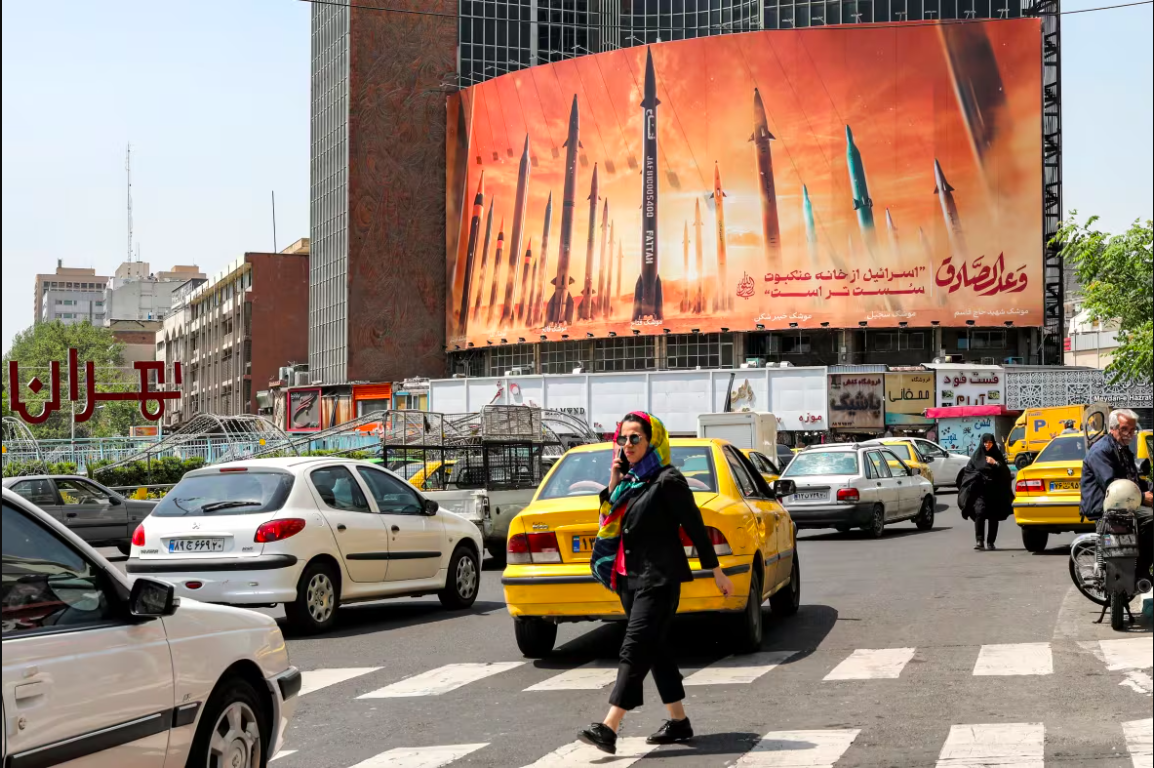
Published 04/15/2024 16:21 | Edited 04/15/2024 16:42
Iran’s recent attack on Israel, considered unprecedented by the international community, is significantly altering the geopolitical landscape of the Middle East. Israeli Prime Minister Benjamin Netanyahu’s war cabinet was scheduled to meet on Monday afternoon, tasked with deciding on the country’s response to Iran’s missile and drone attack over the weekend. This attack led to a significant increase in tension between the two nations and raised concerns about the possibility of open war.
In an interview with Red PortalAna Prestes, Secretary of International Relations at PCdoB, analyzed the impact of this event, which marks not only Iran’s first direct attack on Israeli territory, but also the largest drone attack ever recorded in history.

“The change in this scenario is evident from October 7th. Israel was already relatively more isolated, but managed to regroup Western support with the United States and France, aligning itself once again on Netanyahu’s side”, highlights the PCdoB leader.
The Iranian attack not only demonstrated the Persian country’s ability to attack and retaliate, but also redefined alliances in the region. Israel, which previously seemed isolated, has managed to mobilize support, especially from allies such as Jordan and Saudi Arabia.
Although Iran’s attack caused only modest damage to Israel, the incident provoked a global reaction. World leaders have expressed concern and called for restraint, while pledging to consider measures to deter and condemn Iran’s actions.
“The materiality of this attack expands the conflict to the Middle East region and repositions Israel’s allies once again on Netanyahu’s side”, highlights Ana. Furthermore, the attack highlights who is on Iran’s side, including countries such as Syria, Iraq, Lebanon, in contrast to Jordan, Saudi Arabia and the United Arab Emirates, which maintain a closer alliance with the United States and Israel.
Call for moderation
With Israel’s European allies urging it to restrain itself, US President Joe Biden assured Netanyahu that the United States would not participate in any Israeli counter-offensive against Iran. The call for restraint was echoed by Britain, France, Germany, European Union and United Nations.
The EU High Representative for Foreign Affairs and Security Policy, Josep Borrell, warned about the seriousness of the situation, stating that it is necessary to move away from the precipice and seek measures to contain the escalation.
There are growing fears that the Iranian attack on Israel could trigger an all-out war, especially after months of rising tensions between Israel and Iran’s regional allies, exacerbated by the war in Gaza.
Iran launched the attack in response to an Israeli aerial bombing of its embassy compound in Syria, which resulted in the deaths of seven Iranian Revolutionary Guards officers. This event followed months of clashes between Israel and Iran-aligned groups on several fronts in the Middle East, such as Hamas itself, Hezbollah and Yemen’s Houthis.
Unity against Iran
While Israel remains on high alert, Israeli officials have suggested that immediate retaliation is not in the cards. Centrist Minister Benny Gantz indicated the intention to build a regional coalition to deal with the Iranian threat, while Defense Minister Yoav Gallant mentioned the opportunity to form a strategic alliance against Iran.
However, Iran has warned Israel against any retaliation, with Major General Mohammad Bagheri warning of possible attacks on US bases if Washington helps Israel. Meanwhile, Iranian officials said the attack on Israeli territory was a self-defense measure and that regional neighbors were informed in advance.
The situation remains tense, with the world closely watching developments and hoping for a solution that avoids a further escalation of hostilities in the Middle East.
This change of scenario not only reflects the complexity of international relations in the region, but also raises concerns about rising tensions and escalating conflict in the Middle East. Iran emerges as a significant force in the region, while Israel seeks to strengthen its ties with Western allies to face new challenges and threats.
Source: vermelho.org.br

